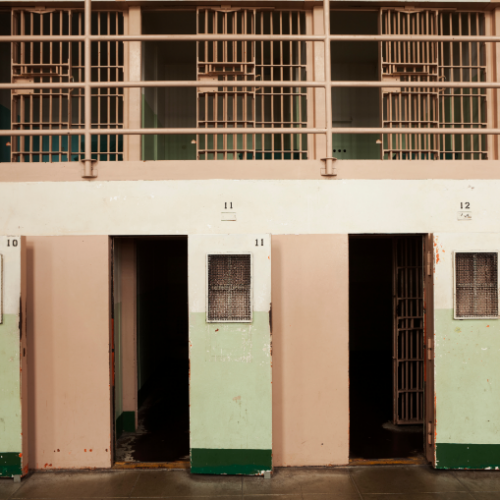Improving Responses to People with Mental Illnesses at the Pretrial Stage: Essential Elements
The period between a person's arrest and his or her case being adjudicated presents a significant opportunity to safely minimize future criminal justice involvement and make needed connections to behavioral health care. Nationally, about 17 percent of people entering jails pretrial meet criteria for a serious mental illness. In addition, about three-quarters of people with serious mental illnesses in jails have a co-occurring substance use disorder. These are individuals who, by and large, are eligible to receive publicly funded health care. Many communities have found ways to make effective connections to treatment for some individuals as part of pretrial release or diversion programs, but policymakers and practitioners continue to struggle to identify and implement research-based policies and practices at this stage of the criminal justice system.
This report introduces essential elements for responding to people with mental illnesses at the pretrial stage, including decisions about pretrial release and diversion. These elements encourage data collection not only to help individual communities, but also for future researchers who are dedicated to these important questions. Read the executive summary.
A positive school experience, where a child feels secure, is essential for their well-being. However, for many children…
Read MoreWhen returning to their communities from criminal justice settings, people with behavioral health needs face barriers in accessing…
Read More Supporting Children of Incarcerated Parents: Reimagining School and Community Collaboration
Supporting Children of Incarcerated Parents: Reimagining School and Community Collaboration
A positive school experience, where a child feels secure, is essential for their well-being. However, for many children with incarcerated parents—one in 14 in the U.S.—school can feel far from safe due to stigma, trauma, and a lack of understanding.
Read More Bridging Communities and Correctional Systems: Q&A with CSG Justice Center Advisory Board Member Commissioner Nicholas Deml
Read More
Bridging Communities and Correctional Systems: Q&A with CSG Justice Center Advisory Board Member Commissioner Nicholas Deml
Read More
 Assigned to the Cloud Crew: The National Incarceration Association’s Hybrid Case Management for People with Behavioral Health Needs
Assigned to the Cloud Crew: The National Incarceration Association’s Hybrid Case Management for People with Behavioral Health Needs
When returning to their communities from criminal justice settings, people with behavioral health needs face barriers in accessing basic needs—including food, housing, employment, transportation, education, clothing, and substance use and mental health services—which increases their risk of experiencing a crisis.
Read More Meet the Medicaid and Corrections Policy Academy Mentor States
Meet the Medicaid and Corrections Policy Academy Mentor States
New Hampshire Department of Corrections Commissioner Helen Hanks presents at the Medicaid and Corrections Policy Academy in-person meeting.
Read More Taking the HEAT Out of Campus Crises: A Proactive Approach to College Safety
Taking the HEAT Out of Campus Crises: A Proactive Approach to College Safety
The sharp rise in school shootings over the past 25 years has led school officials across the U.S. to take a closer look at ways to keep students safe. For Chaffey College in Rancho Cucamonga, California, a tragic incident at a nearby university hit close to home and spurred campus leaders to revisit their own school’s threat assessments and crisis responses.
Read More










